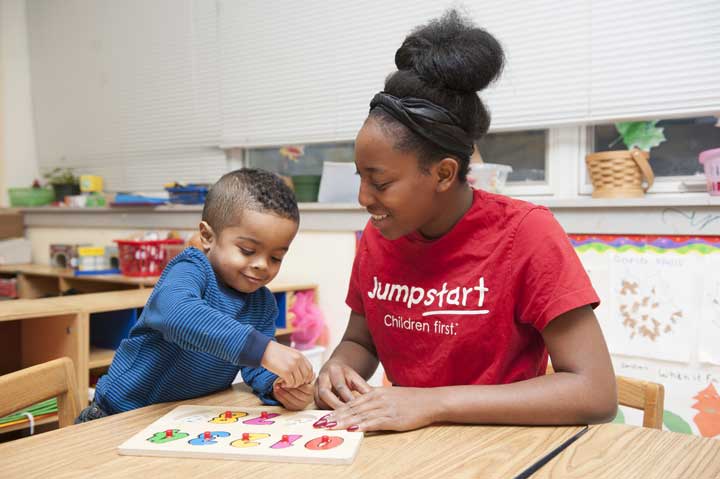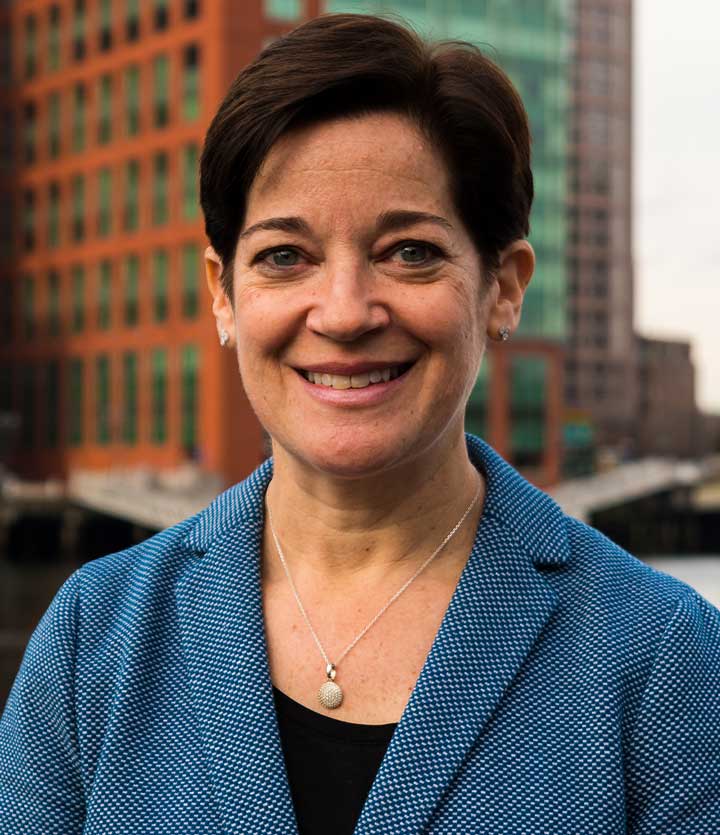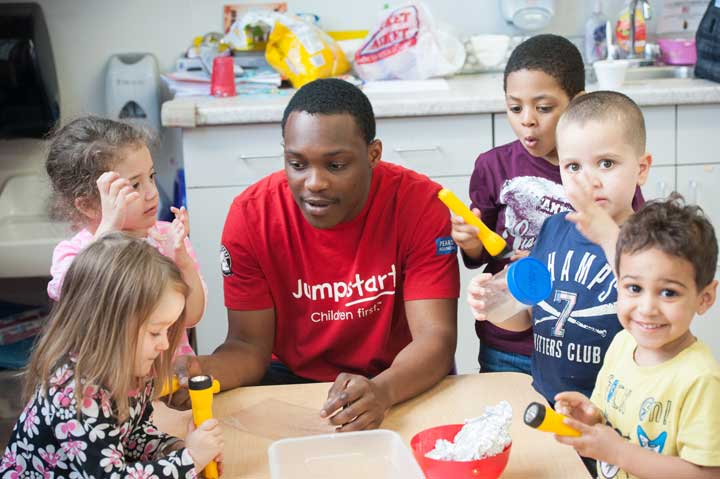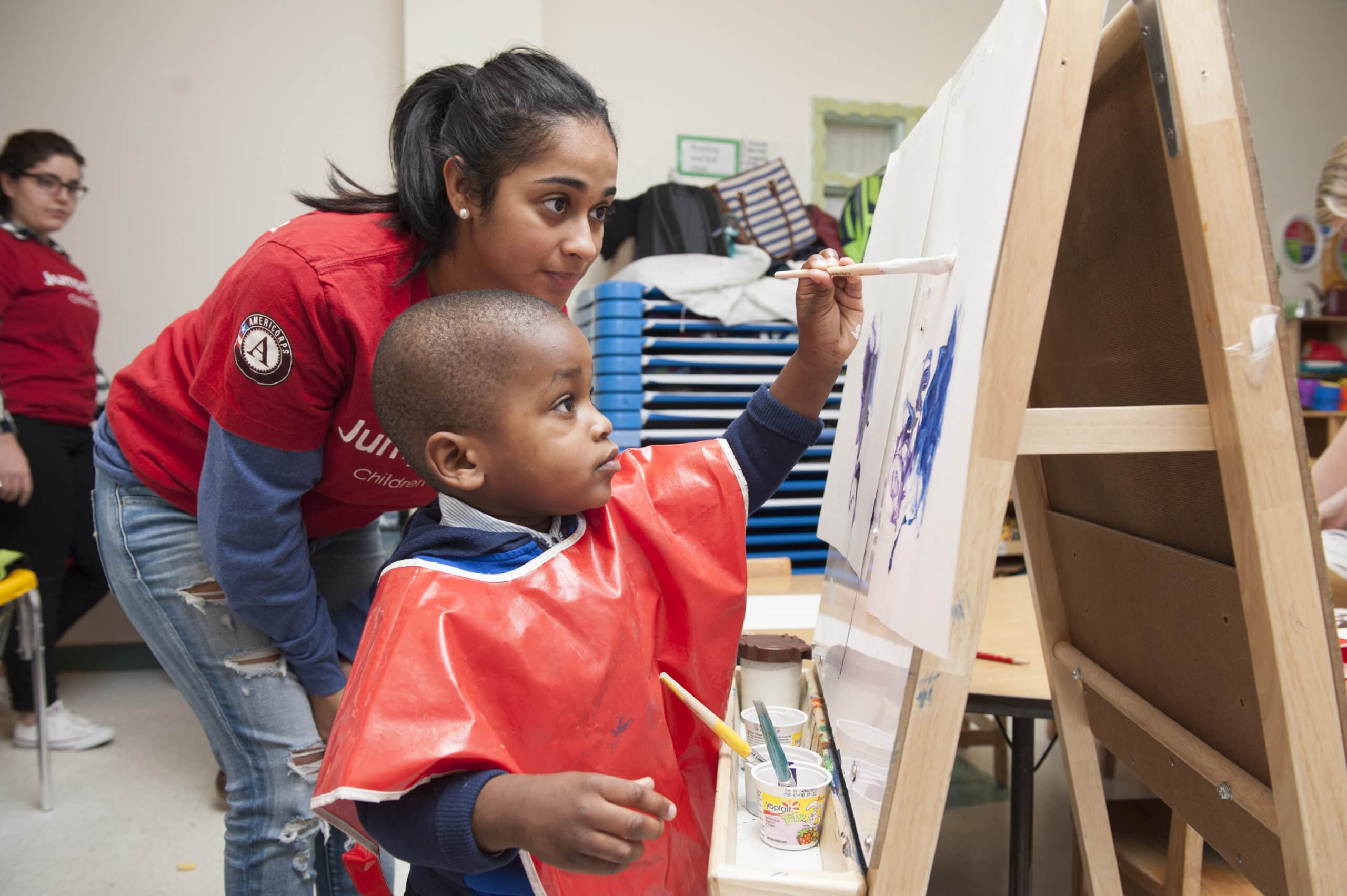
By Alexandra Fradelizio | m/Oppenheim Media Writer
According to Jumpstart’s website, preschool-aged children from low-income families hear “roughly 30 million fewer words than their more affluent peers.” In order to bridge this drastic disparity between under-resourced children and their peers, the national organization provides literacy and social-emotional development preschool programs to low-income children.

“Our vision is to ensure that every child in America enters kindergarten prepared to succeed,” said Jumpstart’s Chief Program Officer Abby Weiss.
Serving nearly 11,000 children per year in the communities of Boston, Los Angeles, Atlanta, and District of Columbia, the organization recruits volunteers, predominantly full-time college students from nearly 70 universities, and immerses them within preschools. The team of volunteers spends over 300 hours in classrooms and is trained to ensure all students are prepared to enter kindergarten.
“Our curriculum is very much geared toward ensuring children have the skills that they need,” explained Weiss.
In addition to training college students, Jumpstart also recruits local volunteers, typically aged 55 and older, and places them within preschools.
“Our college students in particular and some of our older adults are interested in pursuing careers in teaching and early education, so we use this opportunity to provide them with additional support if they want to pursue these fields of education,” said Weiss.

The volunteers teach their students using a curriculum based on oral language and vocabulary. With many of their students learning English as their non-native language, Jumpstart volunteers encourage preschoolers to use a wide array of vocabulary in order to identify emotion both in themselves and others.
“We know that there is a real opportunity for us to support vocabulary development and exposure to language and words,” said Weiss.
Along with supporting their students’ language development, Jumpstart volunteers build relationships with the preschoolers by staying with the children throughout the entire school year.
“We know that a piece of our work that is so important is the adult-child relationship,” explained Weiss.
“We do a lot of training with our volunteers to ensure that they are having meaningful relationships with the children and are understanding the power of these relationships both for the children and themselves.”
Jumpstart is funded by private donors as well as AmeriCorps. The federal program funds 45% of Jumpstart’s budget, but cuts to AmeriCorps could leave the organization without adequate financial backing for its volunteers and preschool students.
“There are a lot of children living in poverty in this country, and we feel that we are not reaching the number that we need to,” said Weiss.
“The possible cuts to AmeriCorps are a huge concern for us.”
While Jumpstart may partner with other organizations and expand to other communities in the near-future, Weiss hopes the organization can change the foundation of preschools nationwide.

“We really want to think deeply about our work with our college students and older volunteers and how we can have an impact on the whole early education system,” she explained.
With 25 years of experience in the education sector and 3 years as Jumpstart’s Chief Program Officer, Weiss has worked to ensure students have access to support services, such as after-school programs, mental and physical health services, and stable housing, so they can succeed in school.
“Lots of the children face trauma where they are living, so the program is a bright spot for them,” she said of Jumpstart.
“Our challenge is how we can reach more children.”
